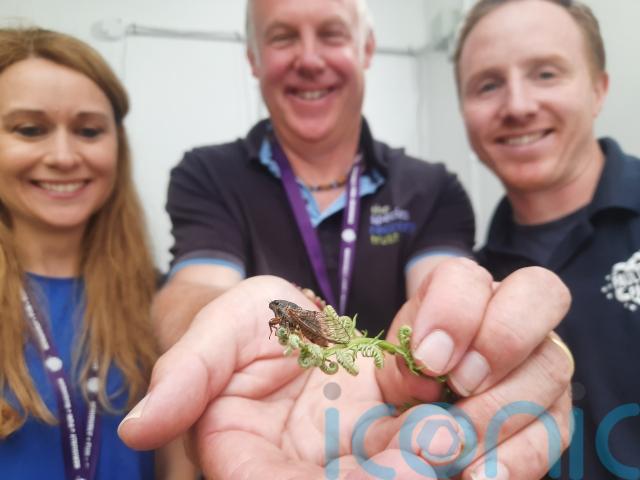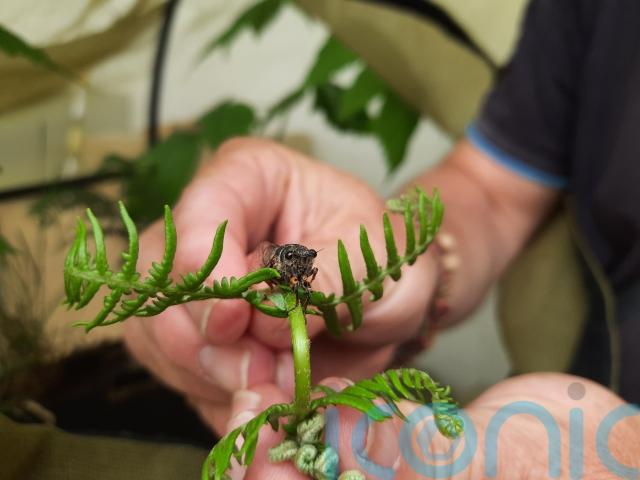
Musical insects that went extinct in the UK have been brought back to the country from France by conservationists hoping to re-establish their population.
Scientists at the Species Recovery Trust this week released 11 New Forest cicadas into a specially created habitat at Paultons Park – just outside the Hampshire woods where they once sang.
The New Forest cicada, Cicadetta montana, was once found across the New Forest but the last confirmed sightings were in the 1990s.
Conservationists believe the insects became extinct in the UK because of changes to the way land was managed.

Charlotte Carne, Species Recovery Trust project officer, said: “This has been a really challenging project so it’s amazing to see New Forest cicadas in England after all this time.
“It’s like bringing them back from the dead.”
The adult insects are black with distinct golden rings and transparent wings, with females growing to about 5cm while males are slightly smaller.
The Trust recruited a French entomologist this week who captured the 11 female cicadas in northern France and had them shipped to the UK on Wednesday.
It is understood that some of the insects are already pregnant and have been laying eggs in their specially created habitat, which is full of their favourite plants such as raspberry canes and hazel tree saplings.
Because cicadas spend at least four years underground as nymphs, the trust will not know until 2029 at the earliest whether this phase of the project has been successful.
If they survive, the conservationists can release the adults at secret locations in the New Forest.
In the meantime, the team said it hopes to import more cicadas from France to continue the breeding programme at Paultons Park.
They are also studying populations of the same species in Slovenia to learn more about their behaviour.

Dominic Price, Species Recovery Trust director, said: “We believe the New Forest cicada probably went extinct because of changes to the way land was managed, but we have worked with Forestry England to put the right kind of management in place.
“What’s more, we think that our warming climate could also favour their survival, so we are very hopeful that one day soon, cicadas will sing in the New Forest again.”
The first-of-its-kind project has been funded by Natural England, the Swire Charitable Trust and the Valentine Charitable Trust.
Graham Horton, acting deputy director for the Thames Solent Area Team at Natural England, said: “This project represents a remarkable achievement, showcasing the dedication, innovation and teamwork that made it possible.
“After years of absence, we finally have New Forest cicada on English shores again and we look forward to the next phase of the project to explore re-establishing this species in the New Forest.”
Subscribe or register today to discover more from DonegalLive.ie
Buy the e-paper of the Donegal Democrat, Donegal People's Press, Donegal Post and Inish Times here for instant access to Donegal's premier news titles.
Keep up with the latest news from Donegal with our daily newsletter featuring the most important stories of the day delivered to your inbox every evening at 5pm.